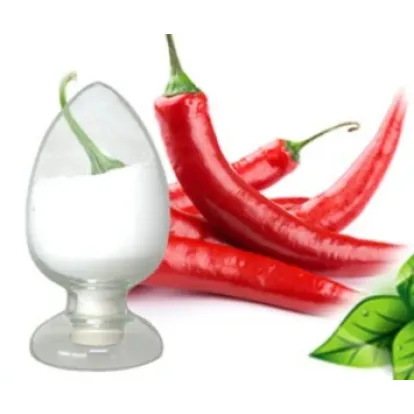FAQs | Everything You Need to Know About Plant Extracts
What are plant extracts?
Plant extracts are substances obtained from the fruits, leaves, seeds, or roots of plants. These extracts contain bioactive compounds that can perform various beneficial actions in the body when ingested through food, dietary supplements, or applied via cosmetics. They are also used for their conservation and antioxidant properties in foods and cosmetics.

What is an extract for?
Extracts are used to concentrate the active components of plants, making them thousands of times more potent than in their natural form. This concentration allows for multiple uses, such as:
Enhancing Nutritional Value: Increasing the dose of an active compound already present in food to provide a health benefit.
Preservation: Incorporating natural compounds into food to extend shelf life by minimizing microbial attacks, protecting against rancidity, and slowing color loss.
Cosmetic Applications: Adding bioactive essences to skincare products to enhance their effectiveness.
Disease Prevention: Providing the body with effective doses of active compounds through dietary supplements to reduce the risk of certain diseases.
Product Innovation: Developing new products based on the extensive health properties of plant extracts.
In which foods can extracts be applied?
Plant extracts can be incorporated into a wide range of food products, including solid foods like processed meat, liquid products like juices and milk, creamy items like yogurt and sauces, fatty foods like oils, and aqueous products like soups. For example, olive extract can be added to mayonnaise to enhance its flavor and provide vitamins and polyphenols.
In which other areas can extracts be applied?
Animal Feed: To create functional feed that offers health benefits to animals, which in turn benefits the health of people who consume their meat or eggs.
Pharmaceuticals: Increasingly used in natural product formulations, extracts are applied via dietary supplements, also known as nutraceuticals.
Cosmetics: Extracts are essential in cosmetic products like creams, serums, lotions, and soaps, utilizing the benefits of plants for direct skin application.
Why are olive extracts necessary to obtain the health benefits of the olive plant?
The European Food Safety Agency (EFSA) ruled in 2011 that consuming Hydroxytyrosol from olive fruit helps prevent the oxidation of LDL cholesterol, reducing the risk of cardiovascular diseases such as arteriosclerosis. To achieve this benefit, a daily intake of at least 5 mg of Hydroxytyrosol is necessary. However, it is challenging to obtain this amount from olive oil alone since no commercial oil contains the required concentration. Thus, enriching oils with Hydroxytyrosol extracts or taking the same amount through nutraceutical formulations is the practical solution.
What is the difference between extracts and oils?
Extracts: These come from specific parts of a plant and are purified to be rich in a standardized component at a given concentration. For example, citrus extracts are high in specific bioactive compounds.
Oils: Composed mainly of fatty acids, oils can also contain smaller amounts of polyphenols or vitamins. They are obtained through pressing fruits and seeds, separating the oils from other components. Unlike purified extracts, oils are not as concentrated in specific bioactive compounds.
Can plant extracts be confused with oils?
No, purified plant extracts should not be confused with extracted oils. Oils are obtained through pressing and contain a mix of components, whereas extracts are concentrated and purified substances rich in specific bioactive compounds. Some oils can be further processed using solvents to separate specific components, but this is different from the extraction process used for plant extracts.
Conclusion
Plant extracts play a crucial role in enhancing the nutritional value, preservation, and health benefits of food products. They are also vital in cosmetics and pharmaceuticals, offering a natural and potent alternative to synthetic ingredients. Understanding the functions and applications of plant extracts helps in making informed choices about their use in various products.

Comments
0